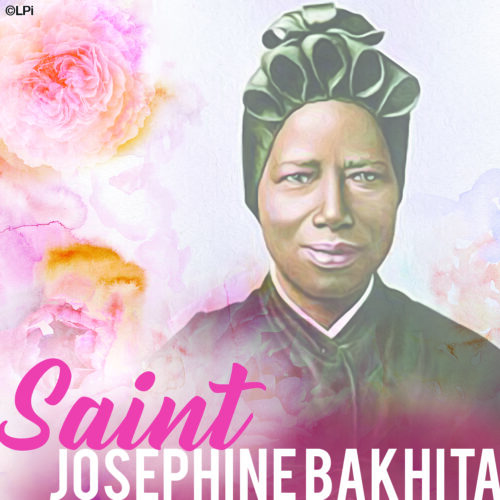In 1869, a young girl was born in Darfur to a respected and reasonably prosperous family in her village. She described that her early childhood was “a very happy and carefree life, without knowing what suffering was.” Yet, unfortunately, her happy and carefree childhood was cut short around the age of 7 she was seized by Arab slave traders and treated very harshly by her slave owners. Due to the trauma of her abduction and harsh treatment, she could not remember her own name, so the slavers called her “Bakhita,” which, ironically, means “lucky” or “fortunate.” Of one of her slavers, Bakhita said, “During all the years I stayed in that house, I do not recall a day that passed without some wound or other. When a wound from the whip began to heal, other blows would pour down on me.”
But after these six years, she eventually ended up with an Italian family who treated her very kindly. She became babysitter and friend to Mimmina, the young daughter of the family. When the parents of the family had to go on a foreign business trip, Bakhita and the young Mimmina were left in the care of a group of nuns, the Canossian Sisters in Venice, Italy. It was here that Bakhita learned about Christianity for the first time. Bakhita said, “Those holy mothers instructed me with heroic patience and introduced me to God who from my childhood I had felt in my heart without knowing who He was.” At 21 years of age, she gave her life to Christ and, received the Sacraments of Initiation, being baptized with the name “Josephine.” Josephine Bakhita did not know how to express her joy that day. Her big and expressive eyes sparkled, revealing deep emotions. From then on, she was often seen kissing the baptismal font and saying: ‘Here, I became a daughter of God!’ When the Italian couple returned, Bakhita refused to go back with them, desiring to remain with the Sisters and when they pressured her, the Italian courts ruled in Bakhita’s favor, saying that she was, in fact a free woman. With her freedom, she then chose to remain with the Sisters, and to freely give all of her life to Christ. At age 27, she took her final vows as a Canossian Sister, where she lived and served for another 50 years living as a true witness of the love of God. When she was on duty at the door, she would gently lay her hands on the heads of the children who daily attended the Canossian schools and caress them. Her amiable voice, which had the inflection and rhythm of the music of her country, was pleasing to the little ones, comforting to the poor and suffering, and encouraging for those who knocked at the door of the Institute.
Her humility, her simplicity, and her constant smile won the hearts of all the citizens. Her sisters in the community esteemed her for her inalterable sweet nature, her exquisite goodness, and her deep desire to make the Lord known. “Be good, love the Lord, pray for those who do not know Him. What a great grace it is to know God!” A young student once asked Bakhita: “What would you do, if you were to meet your captors?” Without hesitation she responded: “If I were to meet those who kidnapped me, and even those who tortured me, I would kneel and kiss their hands. For, if these things had not happened, I would not have been a Christian and a religious today.” Saint Josephine Bakhita is venerated as a modern African saint and as a statement against the brutal history of slavery. She has been adopted as the patron Saint of Sudan and human trafficking survivors.
Pope John Paul II said of her, ” Bakhita…The daughter of Sudan sold into slavery as a living piece of merchandise and yet still free. Free with the freedom of the saints.”
Bakhita’s legacy is that transformation is possible through suffering. Her story of deliverance from physical slavery also symbolizes all those who find meaning and inspiration in her life for their own deliverance from spiritual slavery. And Pope Benedict XVI, in his encyclical letter Spe Salvi, said how St. Josephine Bakhita’s life story is an outstanding example of the Christian hope.
Peace,
-Fr. Kevin
Sources:


